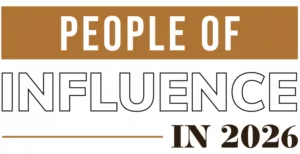Ready-to-drink market is boon for beverage industry
Premixed cocktails, hard seltzers sales continue to grow

Sara Marro and Matt Beaty load pallets of canned ready-to-drink products at Dry Fly Distilling. The RTD market is a growing part of Dry Fly's operations, comprising about 55% of its revenue.
| Karina EliasThe ready-to-drink beverage market has been experiencing extreme growth in recent years, and for some Spokane distillers and brewers, tapping into the RTD sector has been a boon for business, and, especially at the height of the pandemic, an endeavor that helped keep companies afloat.
RTDs include drink-ready and premixed alcoholic beverages not traditionally found in canned form, such as cocktails and seltzers. RTDs can be divided into three categories: malt-based concoctions that include hard seltzers and hard tea; spirit-based drinks that involve canned versions of cocktails; and wine-based beverages that include canned wine and premixed wine cocktails.
Patrick Donovan, president of Spokane-based Dry Fly Distilling Inc., says RTDs make up roughly 55% of Dry Fly’s business. The company’s “On the Fly” canned cocktail series is made up of eight cocktails, including bloody marys, Moscow mules, and gin and tonics. He credits RTD’s steady demand with helping Dry Fly grow and move into its current hub at 1021 W. Riverside.
“We wouldn’t be in this location without them for sure,” Donovan says. “They are different than spirits and more frequent. Your order cycle is not so extended, so they help us with everything from shipping to efficiency to just consistent cash flow.”
With the company’s new majority owner, Caymus Vineyards, a winemaker based in California’s Napa Valley, Donovan anticipates the strategic partnership will help Dry Fly grow by expanding into more states, releasing a 10-year whiskey the duo has been working on, and possibly creating a few wine-based RTDs using Caymus wines.
“We have a lot on the table, and I would definitely expect some new product development early next year,” Donovan says.
According to IWSR, a beverage market research firm based in London, the RTD sector was the only category to record volume growth last year, with a 2% increase in volume and a 6% rise in value. In the U.S., the RTD category is expected to reach $21 billion in value by 2027, according to IWSR.
John Bryant, owner of Spokane-based No-Li Brewhouse LLC and a Spokane Journal of Business 2024 Person of Influence, says No-Li first entered the hard seltzer category in 2018 when the hard seltzer frenzy was descending on the beer market. With the help of industry friends with knowledge of the product, No-Li expanded into RTDs with the release of its Day Fade Huckleberry Hard Seltzer. In April of 2021, No-Li expanded to include craft cocktails made with a seltzer base.
 John Bryant, owner of No-Li, and Cole Bryant, vice president of business operations, say No-Li entered the RTD market with malt-based seltzers. -Karina Elias
John Bryant, owner of No-Li, and Cole Bryant, vice president of business operations, say No-Li entered the RTD market with malt-based seltzers. -Karina Elias“Part of the spirit of our culture is innovation and investment,” Bryant says. “And as a craft brewer, we’re also a craft beverage company.”
Bryant and Donovan both say they are thankful to have had their machinery and RTD systems in place when the pandemic hit and people were stuck at home. Donovan says the timing was perfect, as Dry Fly had its systems dialed in for about a year before COVID hit.
“Everyone was consuming at home during COVID so it was a perfect grab-and-go,” Donovan says.
Bryant says that for brewers, the sudden stop of draft beer sales at indoor establishments that happened in March 2020 influenced many beer makers to diversify their offerings and make hard seltzers.
“It definitely stimulated innovation during COVID because that was the only way you could get to market,” Bryant says.
Market challenges
While No-Li’s line of RTDs expanded during the COVID years, Bryant says the brewery will streamline its offerings to two hard seltzers and two cocktails with a seltzer base by the end of the year because craft beer is where the company’s passion and growth lies.
Bryant and Donovan both point toward market changes and pressures as obstacles in the beverage industry.
How wine, spirits, and beer are taxed has been a challenge for Dry Fly over the years. Spirit-based RTDs are taxed the same as a can of vodka, Donovan says. For example, the distillery’s bestselling RTD is a Huckleberry Lemonade made with Dry Fly vodka that contains 4.9% alcohol by volume. The cans are sold out the door for $5 and are taxed $1.96.
“It’s outrageous,” Donovan says. “We’ve tried to fight it, but you know, beer comes out against it, wine comes out against it. That’s been our biggest struggle in a lot of states.”
Both No-Li and Dry Fly entered into the RTD business before the trend really took off in 2019, when White Claw, a subsidiary of Chicago-based Mark Anthony Brewing, became a cultural phenomenon. After the hard seltzer made a splash, all the bigger companies also decided to enter the market, Donovan says.
“We were there before all those guys, and they just have a lot more money. Retailers care about them, distributors care about them,” he says. “The RTD segment became very saturated very quickly. … I think we’ve done well and our product stands out, but it’s been a battle.”
Changes in market demand will also push Dry Fly to provide single-can RTDs to retailers, a shift from its current four-pack and six-pack system.
Bryant says companies in the Spokane market compete to partner with three main beverage distributors: Columbia Beverage Co., King Beverage Inc., and The Odom Corp.
Every beverage maker wants to partner with a distributor, and producers have to compete to be seen among larger, more well-known companies, he says.
While the RTD market is saturated and marked by challenges, Donovan says Dry Fly will continue to grow in this category.
“With RTDs, we can grow exponentially,” Donovan says. “Getting our cans into more markets nationally is definitely going to be a focus, especially in some Southern states where the season might balance out a little bit because cans will be popular year-round.”




_web.webp?t=1764835652)
